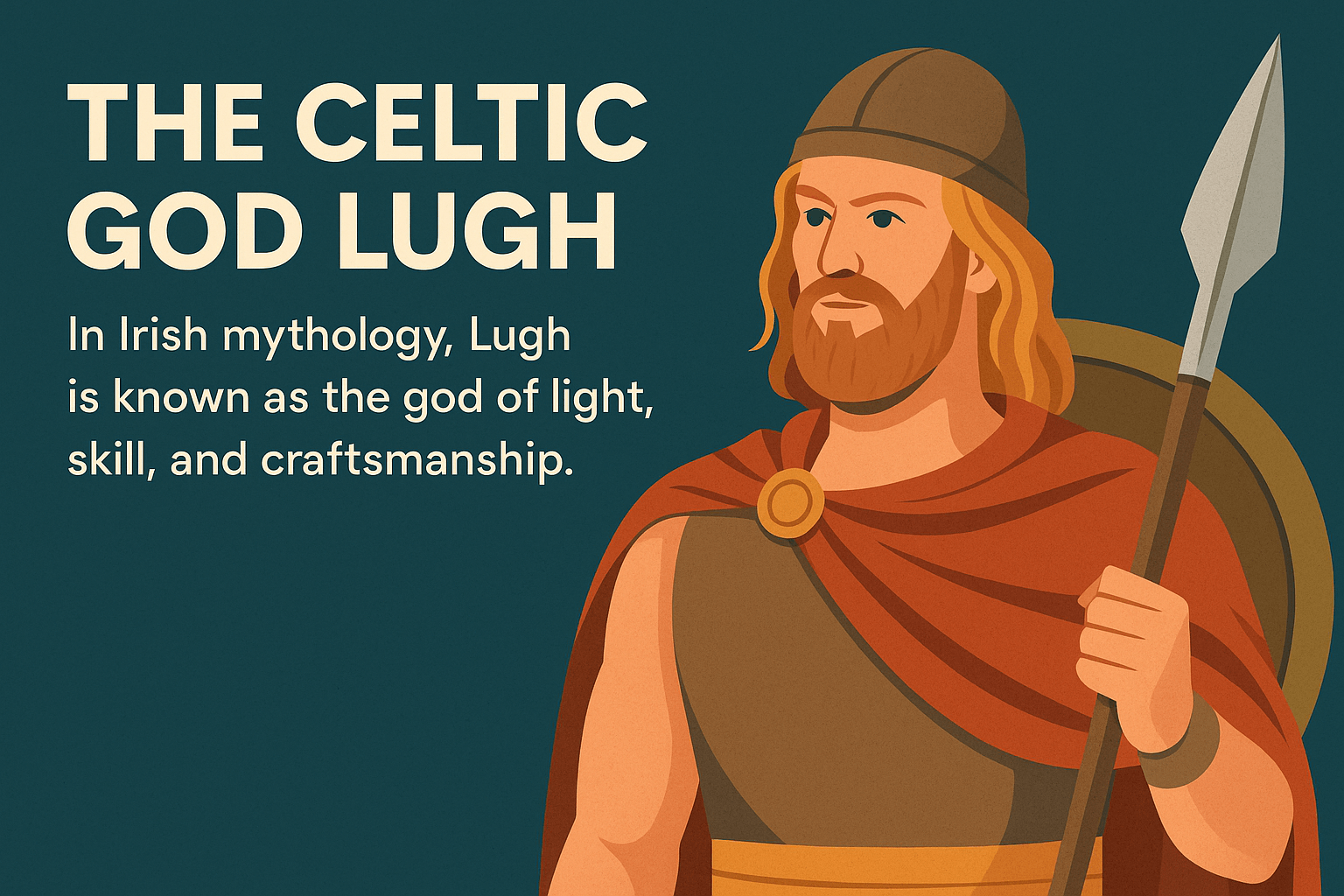In the vast and rich tapestry of Irish mythology, the Celtic god Lugh stands out as one of the most revered and multifaceted figures. Known as Lugh Lámhfhada, or “Lugh of the Long Arm,” he is celebrated as the god of light, skill, and craftsmanship. Lugh’s role in Irish mythology is not only crucial to understanding Celtic spirituality but also to appreciating the linguistic and cultural depth of ancient Ireland. This article explores the life, myths, symbolism, and enduring influence of Lugh, guiding you through a journey of mythological insight and cultural preservation.
Historical and Mythological Background of Lugh
Lugh’s prominence begins with the Tuatha Dé Danann, a mythical race of deities in Irish folklore. According to ancient texts, Lugh was born of mixed divine lineage, with his maternal side tracing back to the Tuatha Dé Danann and his paternal side to the Fomorians, powerful beings often depicted as adversaries. This dual heritage positioned Lugh as a mediator between opposing forces, bringing harmony through strength and intellect.
One of Lugh’s most famous myths is his arrival at Tara, where he impresses the king by claiming mastery in every skill: warrior, smith, poet, sorcerer, historian, and more. His crowning moment comes in the Second Battle of Mag Tuired, where he leads the Tuatha Dé Danann to victory against the Fomorians, using the spear Lúin, a weapon said never to miss its mark.
These stories underscore Lugh’s role as a champion of balance, innovation, and wisdom in Irish culture.
Exploring the Attributes and Symbolism of Lugh
The attributes of Lugh make him one of the most dynamic figures in Celtic mythology. He embodies:
- Light and the Sun: As a solar deity, Lugh is associated with illumination, clarity, and vision.
- Craftsmanship: He is the patron of blacksmiths, builders, and artists.
- Warrior Spirit: Lugh is revered for his martial prowess and strategic thinking.
- Leadership: His wisdom and charisma made him a natural leader among the gods.
The symbolism of Lugh is equally significant. The spear Lúin represents directness, power, and divine justice. Lugh’s association with ravens and oaths speaks to his role in upholding truth and sacred law.
Worship and Festivals Dedicated to Lugh: A Closer Look at Lughnasadh
The most enduring celebration of Lugh is Lughnasadh, a harvest festival held on August 1st. Rooted in pre-Christian Ireland, Lughnasadh marked the beginning of the harvest season and was a time to honor Lugh’s foster mother, Tailtiu, who died clearing the land for agriculture.
Lughnasadh involved:
- Ritual Games: Athletic contests symbolized strength and honor.
- Feasting: Communities gathered to share the bounty of the land.
- Handfasting: Trial marriages that lasted a year and a day.
Even today, modern pagans and cultural enthusiasts celebrate Lughnasadh through music, dance, storytelling, and seasonal crafts—all echoing Lugh’s versatile spirit.
The Ogham Script: A Window into Celtic Language Heritage During Lugh’s Era
Language played a key role in Lugh’s mythos. In ancient times, Irish druids and poets used the Ogham script, a system of lines and notches inscribed on stone or wood, to record names, messages, and lore. Ogham is often linked to sacred trees, many of which held symbolic significance in Celtic spirituality.
Learning about Ogham gives insight into how language, identity, and mythology were intertwined. Lugh, often portrayed as a poet and wordsmith, embodies the oral tradition central to Irish cultural continuity.
If you’re interested in connecting language and legend, check out Gaeilgeoir AI’s Ogham Script Alphabet Guide for a deeper exploration of this ancient writing form.
Modern Influence of Lugh in Irish Culture and Language Revival Efforts
Today, the legacy of Lugh lives on not only in folklore but also in Ireland’s renewed efforts to reclaim its cultural roots. Many Irish language learners encounter Lugh through literature, seasonal festivals, and modern adaptations in film, fiction, and fantasy.
If you’re inspired by Celtic heritage and want to strengthen your own language journey, visit our Irish Language Lessons for Beginners and take your first steps toward mastering Gaeilge.
Conclusion
The Celtic god Lugh continues to inspire as a symbol of intellect, creativity, and cultural strength. Whether in ancient tales of victory and sacrifice or in modern celebrations of identity and language, Lugh embodies the light that guides both warriors and learners.
By exploring myths, mastering phrases, and honoring traditions, we don’t just remember the past—we breathe new life into it. Join the movement to reconnect with Ireland’s roots by signing up with Gaeilgeoir AI and discover how language learning can be your path to Celtic cultural revival.


